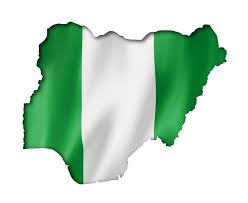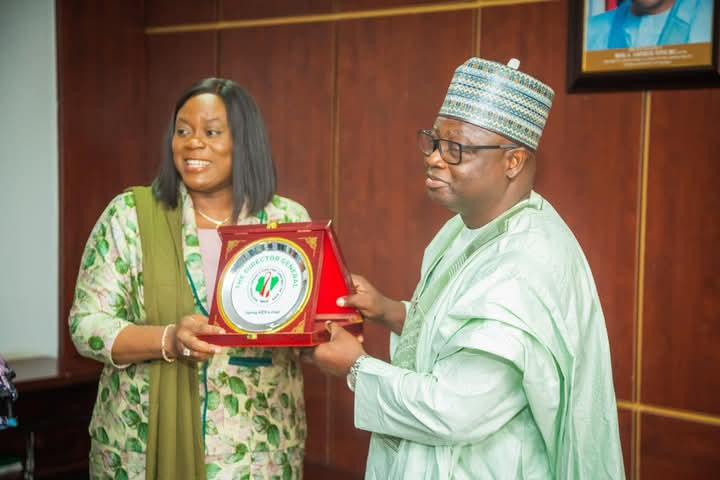He also regretted that Nigerians do not pay property tax, adding that discussions around it are uncomfortable because even policy-makers own properties.
He said: “Today, if you take Nigeria’s demographics, there are about 70 million people in the active population and even if you’re just for the unemployment rate, there are about 70 million Nigerians generating taxable income and should be contributing to the tax pool no matter how little.
“But the total number of Nigerians in the tax pool by the Joint Tax Board record is about 41 million. So, there are about 30 million Nigerians out there not paying fair share.”
A survey across the country about tax administrations will easily reveal one thing: citizens’ apathy to tax payment. Nigeria’s infrastructure section is the worst hit. However, there have been arguments that because of the country’s low tax base, the authorities continue to find it difficult to provide the much-needed infrastructure that will drive development. Even several programmes in the past designed to drive tax development have mostly hit a rock because of perception of what happens to monies collected as tax.
Each of these programmes has been unsuccessful due to the lack of accountability, poor awareness and publicity, poor implementation, and a large informal sector that is not in the tax net.
A World Bank 2019 data revealed that self-employed people in Nigeria make up 79.8 per cent of the total employed population of the country. Similarly, a joint survey conducted and published in 2019 by the National Bureau of Statistics (NBS) and Small and Medium Enterprises Development Agency of Nigeria (SMEDAN) revealed that there are 41.543 million MSMEs in Nigeria. 41.4 million micro-enterprises and 73,081 small and medium enterprises.
The disruption, occasioned by Covid-19, not only led to job losses it also pushed more people into the informal sector. An estimated 20 percent of Nigerians were reported to have lost jobs due to Covid-19.
Experts’ views
Speaking with this reporter, a political economist and development Researcher, Adefolarin Olamilekan, said the issue of Nigerians evading tax is a sensitive question that revolves around the political economy of the country. He added that declaration of the actual amount collected as tax revenue by revenue generating bodies also needs to be addressed.
He noted that many Nigerians, especially the common citizens in the streets, are concerned whenever they see the lavish lifestyles of political office holders added to the humongous corruption figures being rolled out daily by the media.
“Another technical angle is to understand the poor nature of data capture of eligible tax payers in Nigeria apart from workers and individuals working in the formal sector. In addition to the above, the economic situation of Nigerians who see no reason why they should pay tax as they provide everything for themselves, talk of water, its bore hole, talk of security, its vigilante, talk of road and drainage, it’s done through community effort. We can talk of electricity, schools and hospitals. Nigerians bear the cost of all this on their own. And ordinarily, this is what tax proceeds are supposed to do,” he said.
In his view, Francis Ugwu, a hotelier in Jikwoyi, a suburb of the federal capital territory, said there is no point in paying tax when he provides everything for himself. According to him, he spent a huge amount of money fixing a bad portion of the road in the street where his hotel is located.
“Do you expect me to pay tax after spending N150, 000 on road repairs? I expected the government to tell us on a regular basis what they are doing with the tax money they have collected. That is the best way to go about it,” he said.
The informal sector
Data from the NBS the Central Bank Nigeria (CBN) put the number of Micro, Small and Medium Enterprises (MSMEs) in Nigeria at about 40million.
It’s regrettable that despite its large and organised number, the informal sector’s contribution to the tax revenue has not been significant compared to its numbers.
“Again, their contribution in terms of tax we all agree is not significant compared to what they are doing in the economy. From poor data to government neglect, inadequate targeted government intervention and incentives, these are some of the discouraging factors that are culpable elements; the informal sector may not be captured in the tax net.”
Experts have time and again opined that the informal sector is the saving grace of the Nigerian economy going by its sustenance and contribution to the GDP even though there is no official data to it.
“These were the armies of start-up, cash trap, struggling, hardliners that are surviving by self propelled motivation as well as cash boost from savings and friends.
“And the majority of them operate under the business environment that is so harsh leading them to cater for everything that would have eased their business operations,” Adefolarin said.
Capturing the sector, FIRS’ explanations
Despite the lack of official data for the informal sector, the Federal Inland Revenue Service (FIRS) is proposing a tax system that would bring a large part of the informal sector into the tax net. According to the FIRS, it will enable the informal sector to contribute to building a modern society.
Its executive chairman, Muhammad Nami, speaking last year in Abuja, explained that the proposed road infrastructure tax to be administered by the Service will provide the government with adequate funding for road construction, rehabilitation, and maintenance, as well as provide the needed security for roads in the country.
“The only way to make the informal sector contribute to building a modern society is by making them pay when they use the roads. That is why we are proposing that the government should consider introducing Road Infrastructure Tax in Nigeria,” he said.
According to him, road users in many jurisdictions pay for the use of roads in such a way that it will not be an additional burden on the citizen.
Also, the FIRS continues to evolve new ways to expand the country’s tax base.
And one of such is its TaxProMax, which it has assumed a flagship tool that will help it mine data.
“Adopting technology in tax administration is crucial in improving domestic revenue mobilisation in view of dwindling oil prices in order to avoid falling into debt crisis. It is against this backdrop that the TaxPro-Max became the channel for filing Naira-denominated tax returns effectively from 7th June, 2021,” Nami said.
Addressing the drawbacks
As stakeholders in the Nigerian project, the FIRS, experts say, should not relent in their drive to bring in a large segment of the informal sector to become tax payers.
“With the urgent need for industrialisation and development which can only come with developed infrastructure, it behoves the tax agency to create a platform that would onboard both individuals and business entities in the informal sector into a platform that takes cognisance of these tax payers. What this means is that data is very key. Although the FIRS automated system is a great initiative, it must work for every sector, level and persons in the economy,” Adefolarin told this reporter.
The development researcher also harped on the need for transparency in the use of tax resources as it would spur more people to pay their taxes.
“FIRS need to work with various groups, trade unions and MSMEs as well as religious, traditional institutions and CSOs to educate Nigerians on the necessity of tax payment. Although we understand that there is a tax club, we also need to have tax stakeholders down to the rural areas beyond the urban centres.
“The importance of effective communication and orientation cannot be overlooked. The FIRS and National Orientation Agency (NOA) must mutually work together on this.
“Also, working with the NBS is imperative for data harnessing and deployment. This should be translated into local language for all related newsletter and tax matters in Nigeria.
“Lastly, we cannot rule out corruption in the system. So, FIRS must step up its process to curtain corruption, maladministration and official slackness and due diligence. We hope with the FIRS automation system tax administration bottleneck would be eased out and we would have transparency in the system.”





